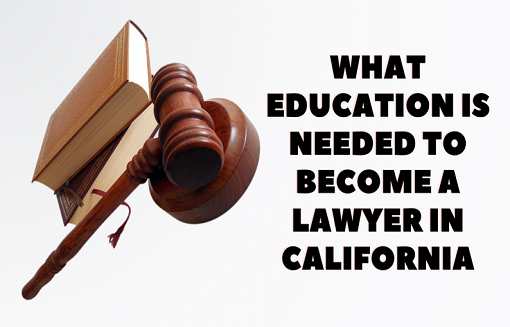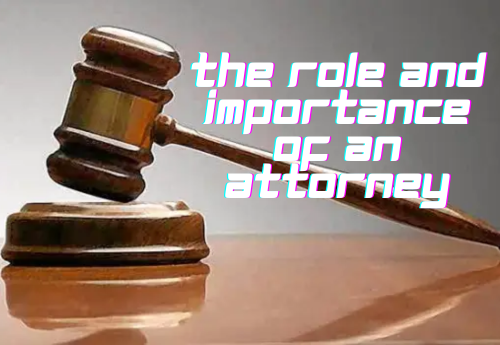Becoming a lawyer in California is a noble pursuit that involves specific educational requirements, rigorous training, and a thorough understanding of the legal system. If you’re interested in pursuing a legal career in the Golden State, it’s essential to know the educational path you need to follow. In this comprehensive guide, we will guide you What Education is Needed to Become a Lawyer in California.
What Degree Do You Need to Be a Lawyer in California?
To embark on a legal career in California, you must first earn a bachelor’s degree. California, like most states in the United States, doesn’t require a specific undergraduate major. However, certain majors, such as political science, criminal justice, or pre-law, can provide a solid foundation for your legal studies.
What do you need to become a lawyer in California?
In California, you need a bachelor’s degree to begin your journey towards becoming a lawyer. While there are no strict major requirements, it’s wise to choose a major that will prepare you for law school and the legal profession. Majors like political science, criminal justice, or pre-law can be particularly advantageous.
How Many Years Does It Take to Become a Lawyer in California?
Becoming a lawyer is a multi-step process, and the duration can vary depending on your chosen path. The most common routes are through law school or the Law Office Study Program. Here’s a breakdown of the timelines:
How many years to become a lawyer in California?
- Traditional Law School Route: If you choose to attend a traditional law school, it typically takes three years to complete your Juris Doctor (JD) degree.
- Law Office Study Program: If you opt for the Law Office Study Program, it may take four years, including the required 18 hours of study per week.
- Fast Track: The fastest way to become a lawyer in California is through traditional law school, which takes three years. However, your total time investment may vary depending on your chosen path.
Does California Require a Law Degree?
In California, you do not necessarily need a law degree to become a lawyer. While a Juris Doctor (JD) degree from an American Bar Association (ABA)-approved law school is the most common path, the state offers an alternative route known as the Law Office Study Program. Let’s explore both options:
Fastest way to become a lawyer in California
The quickest way to become a lawyer in California is to earn a JD degree from an ABA-approved law school. This is the conventional path and takes approximately three years. However, it’s worth noting that this is the most time-efficient route, but it may not be the shortest in terms of the total number of study hours.
Law office study program California
The Law Office Study Program is an alternative option. It allows you to work under the supervision of an attorney and complete the required hours of study. This route typically takes longer, around four years, and involves a more hands-on learning approach.
What Qualifications Do You Need to Be a Lawyer in the USA?
To become a lawyer in the United States, including California, you need to meet certain qualifications, regardless of the state you plan to practice in. Here are the key steps:
5 Steps to Become a Lawyer
- Earn a Bachelor’s Degree: Obtain a bachelor’s degree from an accredited college or university. There are no strict major requirements, but majors related to law or social sciences can be beneficial.
- Pass the LSAT: Take the Law School Admission Test (LSAT), a standardized test that assesses your skills in reading and logical reasoning. Your LSAT score is a critical component of law school admissions.
- Attend Law School: Choose between a traditional three-year law school program or the Law Office Study Program, as discussed earlier.
- Pass the Bar Exam: After completing law school or the Law Office Study Program, you must pass the California Bar Exam to become a licensed attorney.
- Meet Other State-Specific Requirements: California, like other states, may have additional requirements such as the Multi-State Professional Responsibility Examination (MPRE) and moral character evaluations.
Additional Tips for Aspiring Lawyers
What undergraduate degree do you need to be a lawyer
While there is no specific undergraduate degree required to become a lawyer in California, some degrees may better prepare you for the rigors of law school and the legal profession. Consider majors such as political science, criminal justice, philosophy, or pre-law to build a strong foundation of critical thinking and analytical skills.
Law schools in California
California is home to several prestigious law schools, including Stanford Law School, UC Berkeley School of Law, and UCLA School of Law. If you choose to attend law school, it’s crucial to research and select an institution that aligns with your career goals and provides a high-quality legal education.
Conclusion
Becoming a lawyer in California is a rewarding journey that requires dedication, education, and a passion for justice. The educational path to becoming a lawyer involves earning a bachelor’s degree. Choosing between traditional law school or the Law Office Study Program, and passing the California Bar Exam. While a law degree from an ABA-approved law school is the most common route, the state offers flexibility through the Law Office Study Program for those who prefer a hands-on approach.
You have to wait 10 seconds.







